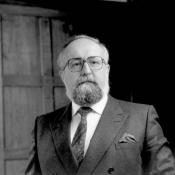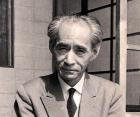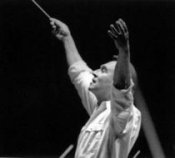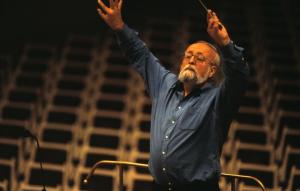Contributed by DoNQuijote82 - 2012/8/3 - 12:07
×
![]()
Note for non-Italian users: Sorry, though the interface of this website is translated into English, most commentaries and biographies are in Italian and/or in other languages like French, German, Spanish, Russian etc.









A memorial to the victims at Auschwitz, Dies Irae allows the singers and players to improvise according to their talents and abilities. The chorus recites words, rather than singing them, and the instruments are the framework for the rhythm and pitch. It was first performed on the grounds of Auschwitz in 1967.
Penderecki composed Dies Irae (also known as Auschwitz Oratorio) after the successful performances of his St. Luke Passion. It has much in common with that work, though it is on the whole a less impressive achievement. The text draws on various literary sources: Psalm 116, the Apocalypse, Aeschylus’s Eumenides as well as poems by Broniewski, Aragon, Rózewicz and Valéry. (All the contemporary texts are translated into Latin while the Aeschylus fragments are sung in Greek.) The scoring is for very substantial orchestra with a large percussion section, though without violins, violas and clarinets, the latter being replaced by saxophones. The choral writing often uses divisions (up to 24 parts at times) and mixes song, speech and chant with a variety of unusual vocal effects, as it did in the masterly St. Luke Passion. Dies Irae may well be an occasional piece, but it is nevertheless a substantial work as well as a deeply-felt statement.